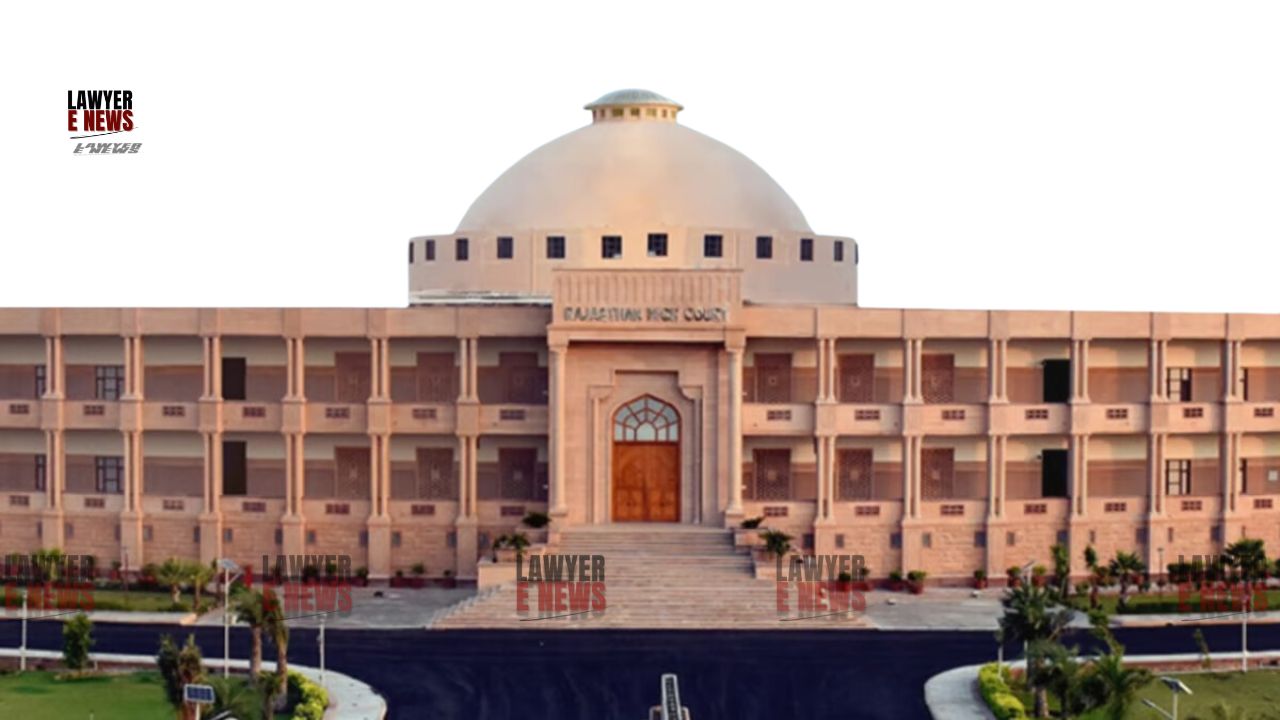-
by Admin
15 February 2026 5:35 AM



Rajasthan High Court directs RSRTC to amend its 1965 regulations and align them with the Maternity Benefit (Amendment) Act, 2017. In a significant ruling, the Rajasthan High Court has directed the Rajasthan State Road Transport Corporation (RSRTC) to grant 180 days of maternity leave to its female employees, bringing its policies in line with the Maternity Benefit (Amendment) Act, 2017. The court criticized RSRTC’s reliance on its outdated 1965 regulations, which only provided for 90 days of leave. The judgment highlights the necessity of modernizing workplace policies to reflect the evolving legal framework and uphold the constitutional rights of women.
The petitioner, Minakshi Chaudhary, an employee of RSRTC, applied for 180 days of maternity leave after the birth of her child. However, RSRTC sanctioned only 90 days of leave, citing Regulation 74 of its 1965 service rules. The petitioner argued that this was discriminatory and not in line with the central government's amendment in 2017, which increased maternity leave to 180 days. She approached the court seeking parity with other government employees.
Motherhood as a Fundamental Right: Justice Anoop Kumar Dhand, who presided over the case, remarked, "Motherhood is not only a biological process but a journey that reshapes a woman’s identity." The court emphasized that maternity leave is not merely a statutory entitlement but a fundamental right linked to a woman’s dignity, identity, and role in society. The judgment reinforced that the right to maternity leave is rooted in the broader rights guaranteed under Articles 14 and 21 of the Indian Constitution, which encompass equality and the right to live with dignity.
The court pointed out that RSRTC's reliance on the 1965 regulations, which capped maternity leave at 90 days, was untenable in light of the 2017 amendments to the Maternity Benefit Act. “The respondent RSRTC is trying to take shelter of Regulation 74, but such regulation has become ancient in view of subsequent acts,” the court noted, underscoring the need for RSRTC to amend its rules in line with current legislation.
The judgment stressed the importance of equal treatment for all female employees, irrespective of their workplace. Justice Dhand observed, "Granting only 90 days of maternity leave to RSRTC employees amounts to discrimination," as other government employees are entitled to 180 days of leave. The court further emphasized that limiting maternity leave infringes upon a woman’s constitutional rights and undermines her ability to balance her professional and family responsibilities.
The court invoked several key judgments and constitutional provisions to support its ruling. It highlighted that Article 21, which guarantees the right to life, includes the right to maternity relief. Additionally, Article 42 of the Constitution calls for humane working conditions and maternity benefits, reinforcing the state's obligation to protect the health and well-being of working women and their children.
The court also referred to various Supreme Court judgments, including Municipal Corporation of Delhi v. Female Workers (Muster Roll) and Bandhua Mukti Morcha v. Union of India, which recognized maternity benefits as an essential right tied to a woman's dignity and fundamental rights under Article 21.
"The Regulation of 1965 is liable to be amended now, as the same is the need of the hour," Justice Dhand declared, urging RSRTC to bring its policies in line with contemporary standards. He further added, "Women contribute to half of the segment of our society and they have to be honored and treated with dignity at all places, including where they earn their livelihood."
This landmark judgment by the Rajasthan High Court sets a precedent for aligning workplace policies with current legal standards, particularly those concerning women's rights. The court's ruling not only ensures that RSRTC employees receive 180 days of maternity leave but also sends a broader message about the importance of updating outdated regulations to reflect modern legal principles. The decision is expected to prompt similar reforms across various sectors, reaffirming the judiciary's role in upholding social justice and gender equality in the workplace.
Date of Decision: September 5, 2024.
